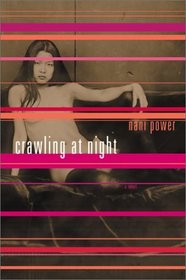This book is an advanced copy paperback
Search -
Crawling At Night: A Novel
Crawling At Night A Novel
Author:
Crawling at Night is a darkly lyrical, charged exploration of the double-edged sword of urban anonymity. Nani Power brilliantly paints a cityscape like no other and makes visible the people often condemned to its shadows: in late-night Chinatown clubs; in downtown restaurants after the CLOSED sign goes up; and behind the closed doors of small st... more »
Author:
Crawling at Night is a darkly lyrical, charged exploration of the double-edged sword of urban anonymity. Nani Power brilliantly paints a cityscape like no other and makes visible the people often condemned to its shadows: in late-night Chinatown clubs; in downtown restaurants after the CLOSED sign goes up; and behind the closed doors of small st... more »
ISBN-13: 9780871137845
ISBN-10: 0871137844
Publication Date: 4/9/2001
Pages: 234
Rating: ?
ISBN-10: 0871137844
Publication Date: 4/9/2001
Pages: 234
Rating: ?
0 stars, based on 0 rating
Please Log in to Rate these Book Reviews
Genres:
- Literature & Fiction >> General >> Contemporary
- Literature & Fiction >> General >> Literary
- Literature & Fiction >> World Literature >> United States





